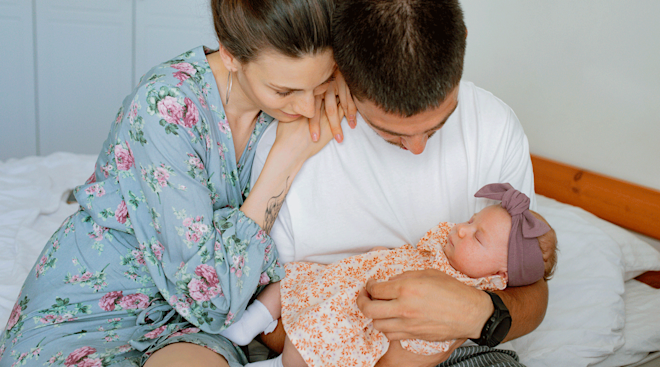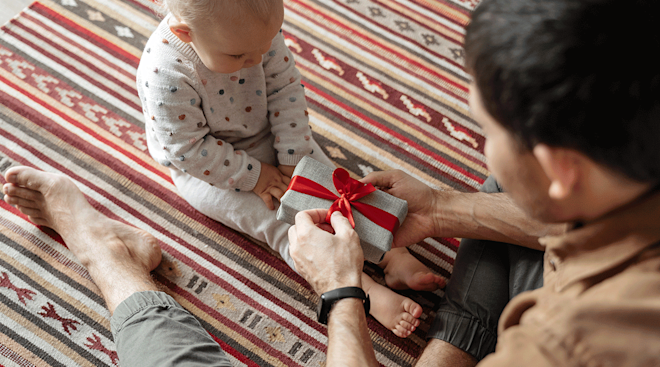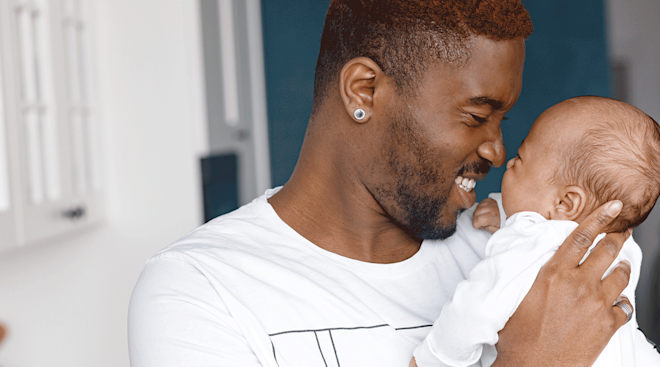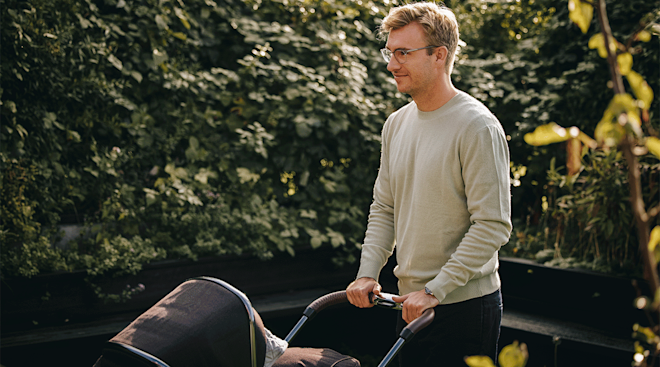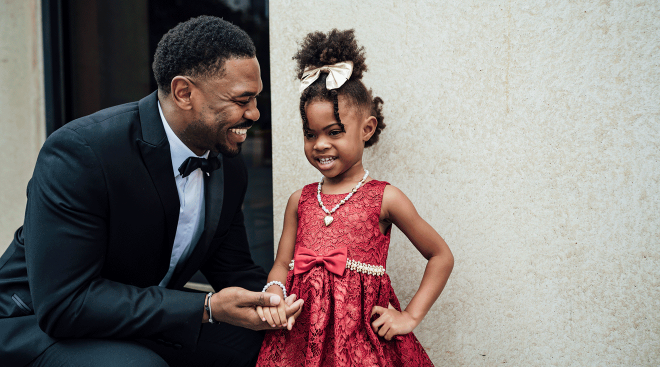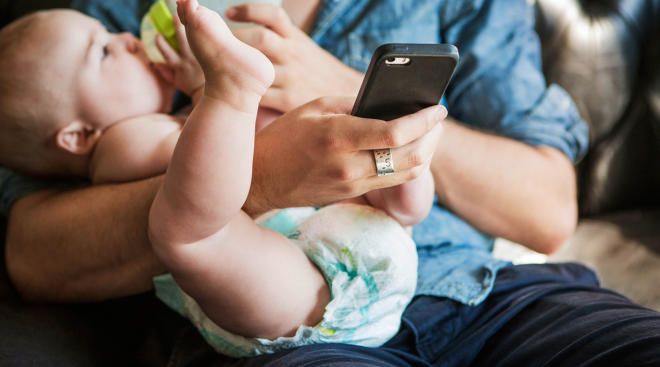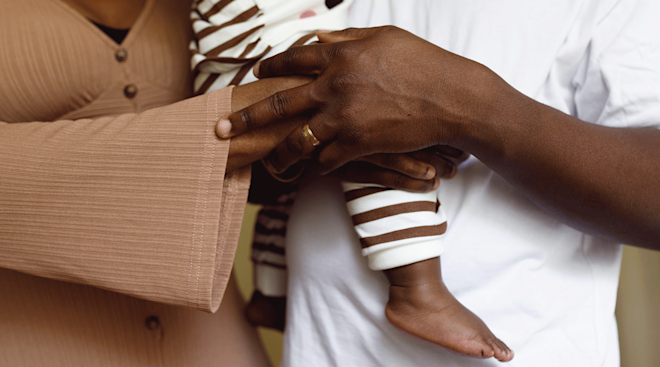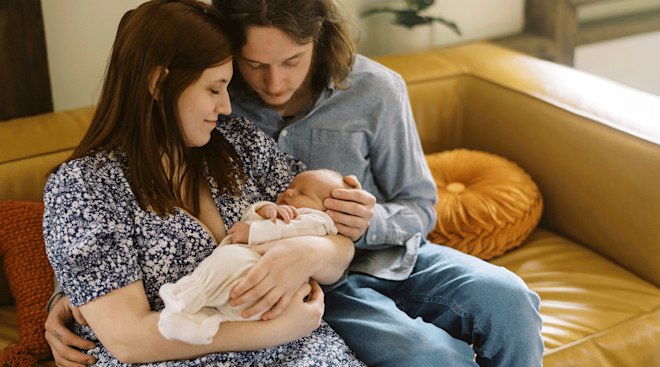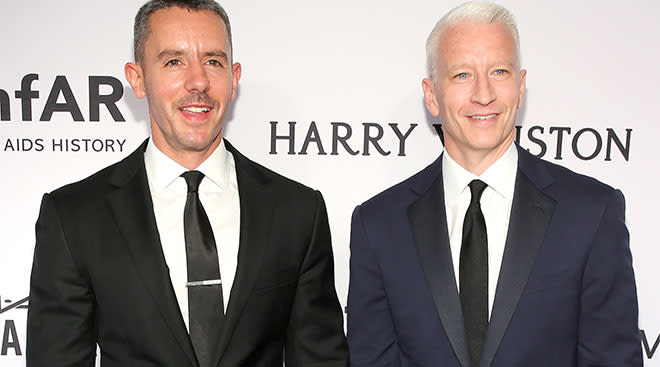Why You Should Open Up About Your Relationship Struggles (and How)
Truth: In the midst of parenthood, it’s easy to feel “stuck” in your relationship, and it’s tough to talk about it with others. After all, it’s not easy to be vulnerable inside your relationship, much less be vulnerable outside your relationship with others. Even with close friends, discussing issues with your love life can feel uncomfortable. You might not want to burden your friends by sharing something heavy, or you might be afraid of looking like your marriage is in trouble. The whole process is filled with anxiety—and that’s normal.
Spoiler alert: As daunting as it may initially seem, sharing your feelings with others lowers your anxiety and makes you twice as more likely to make progress on whatever relationship issue you and your partner are struggling with.
If your anxiety isn’t dealt with, it’s easy to bottle it up and feel resentful and isolated. You may even tell yourself, “No one would understand this, so why share?” and find yourself unable to move forward.
In fact, according to a couples survey of 5,398 couples by Lasting, the leading couples counseling app, 48 percent of people don’t feel comfortable asking their partners for what they need—and that jumps to 52 percent for those who are parents!
But science confirms that it’s possible to get unstuck if you can manage to face your anxiety and then share what you’re feeling with others—which, as it turns out, is a necessary skill for thriving as a new parent.
So how can you acknowledge your anxiety and move forward? Read on for expert advice from Liz Colizza, MAC, LPC, NCC, a seasoned couples and family psychotherapist and head of marriage research at Lasting.
In order to engage in healthy self-reflection, you’ll first need to quiet your mind. Feel free to do whatever it takes to calm yourself—deep breathing, visualization, meditation, prayer or exercise.
Next, Colizza recommends checking in with yourself and asking two questions:
1. “What is making me feel anxious?” You can’t rush this part; you need to wait and listen to yourself. If it helps, psychiatrist Dan Siegel, MD, recommends a framework called SIFT, which entails “sifting” through your mind for Sensations, Images, Feelings and Thoughts related to the issue. All of these matter and can inform you.
2. “What’s the hardest part about this?" To help you figure this out, you can also frame the question as, “What’s the worst case scenario here?” Again, you have to SIFT through your inner world and listen for the answers.
The final part is naming (out loud or in your head) what your anxiety is all about. Then you can move on to the next step.
There are really only two choices here—to be or not to be. And if you want lasting love, then vulnerability is a requirement.
Deciding to be vulnerable means you don’t hold back your emotions from your partner. Even when you’re hit with a negative emotion, like anxiety, you mentally commit to expressing that information to your partner. “I want to see couples engage with emotions and view emotions as informational and important,” Colizza says of her couples counseling sessions. “A lot of people need help in this area—help with naming, accepting, understanding and engaging with their emotional world.”
Steve Dziedzic, founder of Lasting, adds, “Emotions are powerful signals. They’re like personal notifications to your body. They tell us what we like or dislike, what we fear or care about and what makes us happy or sad.”
Sharing with others has enormous sway in your life. Multiple studies show the act of verbalizing your anxious feelings to others actually helps lessen your negative physiological experience of anxiety—meaning it deadens the power of the emotions so you don’t feel as bad. So really, sharing is self-caring.
Plus, sharing a goal with someone else makes you two times more likely to make progress on that goal, and your friends and support system can play a big role in helping you shape your relationship. Why? For the same reason exercise buddies and personal trainers can help you follow through on your workout goals, accountability when goal-setting is one of the most crucial elements in your success.
Opening up about your relationship takes self-reflection, vulnerability and courage, but the accountability and support that comes with it adds tremendous value to your life.
Interestingly, in a 1,112-person survey conducted by Lasting, 49 percent of couples say they don’t have a healthy support network of friends and family in their relationship. That moves up to 55 percent for parents, who are more likely to struggle with loneliness and isolation.
Need an easy way to build support around the work you’re doing in your relationship? Download the Lasting app and dive into the Emotional Connection series for some guided help.
The next time you want to share something vulnerable, know that it’s important to do so—and that it’ll be okay.
Published December 2018
Plus, more from The Bump:
Navigate forward to interact with the calendar and select a date. Press the question mark key to get the keyboard shortcuts for changing dates.


































